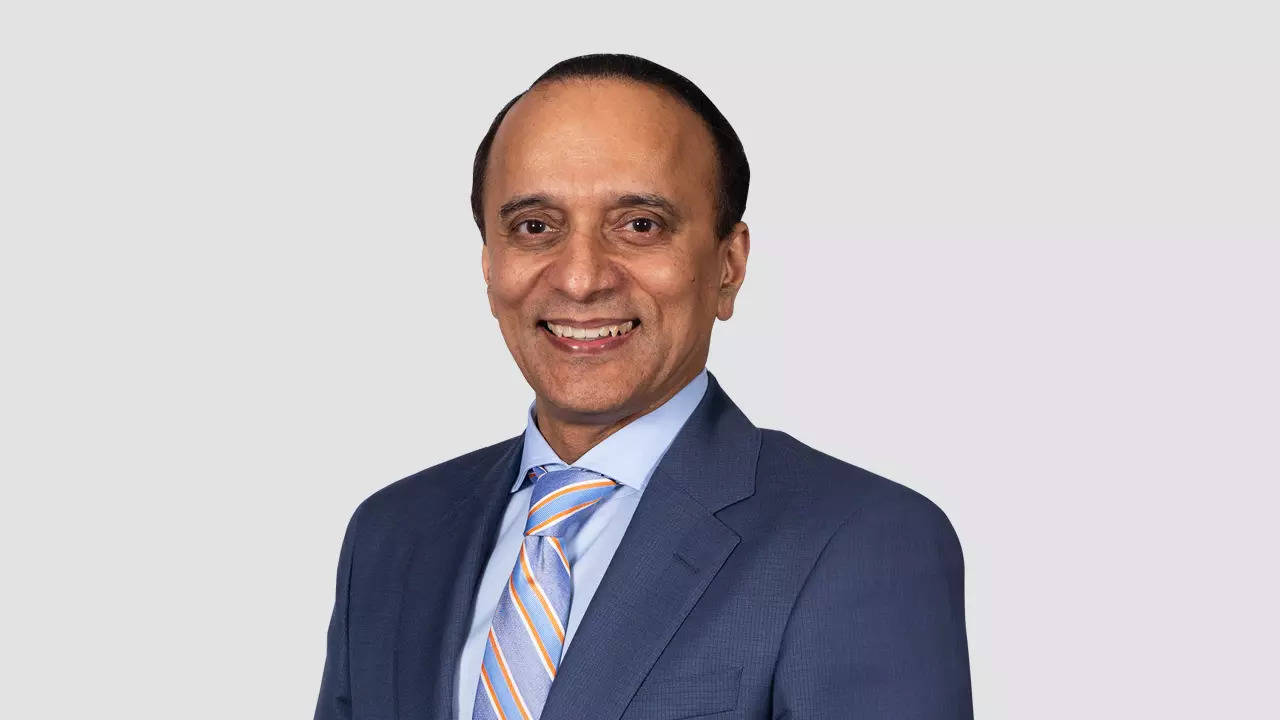Artificial intelligence
(AI) is revolutionising our healthcare systems. Dr Prateek Sharma, president of American Society for
Gastrointestinal Endoscopy
and chair for its AI task force who will be delivering the keynote address at the 65th annual conference of Indian Society of Gastroenterology in Varanasi in Dec, talks about the pros and cons of
AI-powered healthcare
.
What is all the buzz about AI in Health?
AI is making an impact in healthcare, changing the way diseases are diagnosed, managed and even prevented. Once seen only as science fiction and in movies, AI has quickly moved from research labs into hospitals, clinics and even our phones.
What does this mean for everyday patients, and how does it work?
At the basic level, AI is about teaching computers to recognize patterns, learn from data, and make predictions. In healthcare, it means that AI tools can go through large amounts of information, such as patient images or patient histories, and help doctors make faster, more accurate decisions. For example, AI can now aid doctors by analyzing X-rays and MRIs, to detect diseases like cancer. By examining such images and recognizing subtle changes that can often be missed by the human eye, AI can help spot signs of skin, lung or breast cancers sooner. Similar to X-rays, AI can assist pathologists in diagnosing diseases from biopsy images, increasing accuracy and efficiency.
Is AI in healthcare available only in hospitals?
AI can also improve patient care outside the hospital. Virtual assistants and chatbots on smartphone apps can now guide people through managing chronic conditions like diabetes or heart disease. These apps use AI to keep a check on patient health and provide personalized advice — reminders to take medications, exercise recommendations, and even alerts to see a doctor if necessary. Take for example diabetes, a very common condition in India. There are platforms and apps available for diabetes management, using AI to provide personalized tips and suggestions to patients at home based on their real-time blood sugar data.
These tools offer patients more control over their health, which is especially important in rural areas and parts of the country with limited access to doctors. Digital health tools such as
telemedicine
can connect patients in remote areas with doctors in metro cities, reducing the need for long travel distances or if specialty care is not locally available.
How else does AI help doctors and patients?
One of the most important ways that AI can impact healthcare is to help with the automation of common time-consuming work such as scheduling appointments, billing, maintaining medical records, writing patient notes, sending referrals etc. This will free up time for the doctors, reduce the administrative burden so that doctors can focus on the patients and spend more time in their treatment. Currently available large language models (LLMs) such as ChatGPT/Gemini can assist by generating clinical notes during patient interactions and provide them with educational material.
What are some of the risks of using AI in healthcare?
AI in healthcare also brings some challenges, such as patient privacy, data security and potential mistakes made by AI. AI depends on large amounts of patient data and keeping this data secure and private is a big challenge. An AI system can make a mistake which could lead to a wrong diagnosis or treatment. To avoid this, human oversight is extremely important. Also, AI systems should undergo high levels of testing before their use.
To develop and maintain AI technology is costly, and so many small clinics or low-income areas cannot afford it. Since ChatGPT/Gemini type tools are accessible, it could lead to over-reliance on AI, impacting the doctor’s clinical judgment and the human touch in treating patients. Such LLMs can sometimes provide outdated information and it is important to remember that they lack medical expertise and are not trained on specific medical literature. LLMs may provide answers that sound very accurate and reasonable but are clinically incorrect. It is our job as doctors to double check and confirm AI generated information.
Does this mean that patients will be treated by AI and not by doctors?
Absolutely not. While AI will definitely help the care of patients, it will never replace the human expertise and compassion provided by doctors. The future of AI in medicine is about partnership, where doctors and AI work together to deliver the best treatment. We have to use easily available tools like ChatGPT/Gemini very carefully to complement the expertise of the doctor. The medical community must balance innovation with caution, so that technology improves — rather than replaces — the human connection in medicine.
Sharing of medical documents like X-rays and MRI scans with an AI chatbot, such as Elon Musk’s Grok on X, has recently been encouraged. What are the benefits and risks?
This may provide the public with a simplified understanding of medical images/documents, helping them better understand their health condition/diseases. However, users need to be aware of data privacy, transparency, bias and ethical issues associated with such public sharing of data. Not fully understanding how their data is being used, stored or shared could lead to unethical exploitation of users’ medical information. Besides, the lack of regulatory approval for AI chatbots like Grok means they may not be adequately trained, or may be using biased data which could lead to less reliable clinical interpretation, misdiagnoses or incomplete feedback. Medical management requires expertise and context, which an AI tool will lack without a doctor’s oversight.
I’m Manas Ranjan Sahoo: Founder of “Webtirety Software”. I’m a Full-time Software Professional and an aspiring entrepreneur, dedicated to growing this platform as large as possible. I love to Write Blogs on Software, Mobile applications, Web Technology, eCommerce, SEO, and about My experience with Life.




